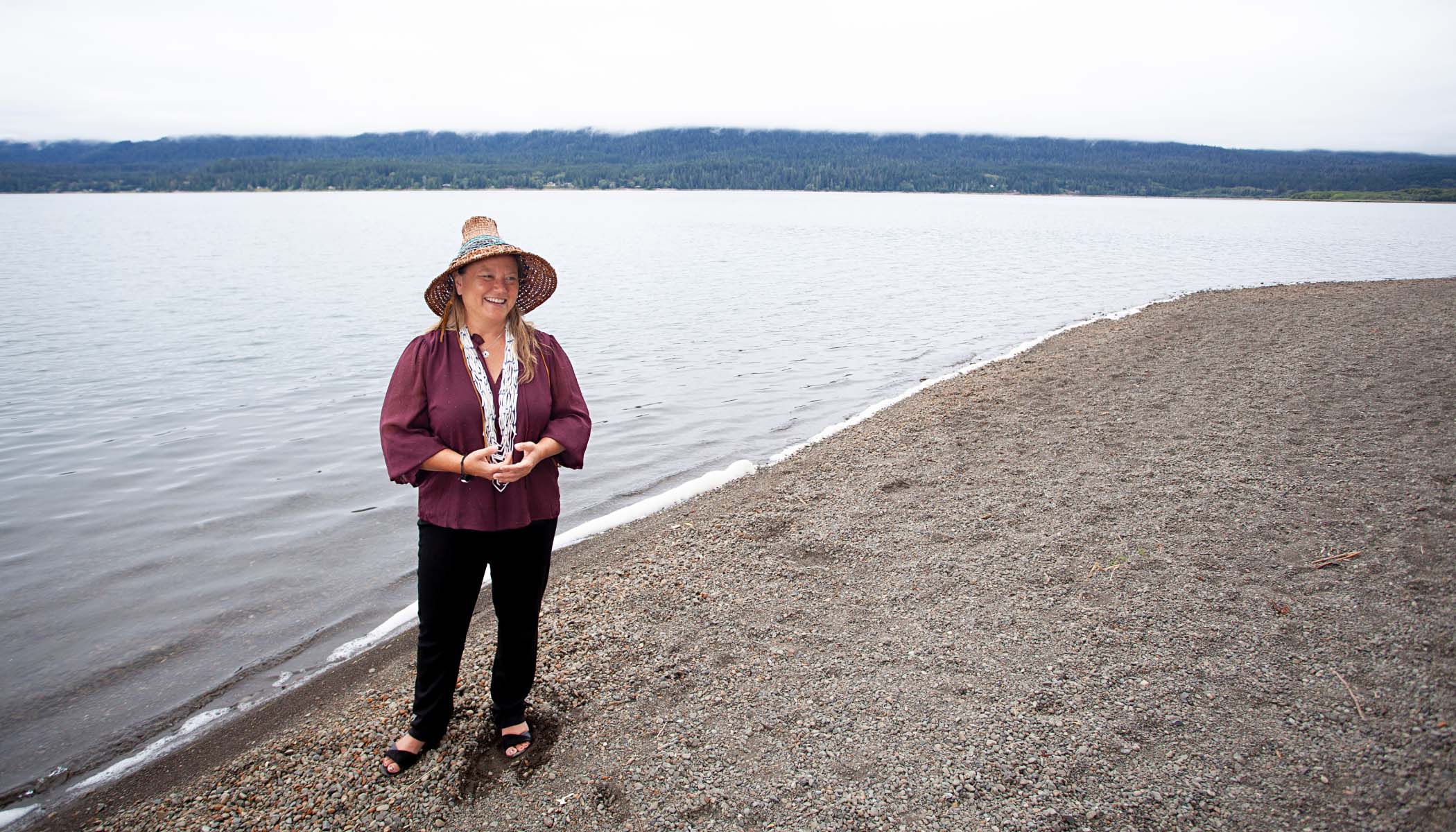Dec 1, 2022 · 5 min read
Tribal Nations Launch Collaboration to Address Climate Crisis
New program aims to support Tribal leadership on carbon pollution cleanup

Building Tribal Leadership in Carbon Removal, a new program of Global Ocean Health, has launched an Intertribal Working Group with participants representing a diverse set of Tribal Nations. The working group will assess the research, policy, and emergence of carbon dioxide and other greenhouse gas removal strategies, in order to advance promising solutions to address climate change. This program is supported by Additional Ventures and the Chan Zuckerberg Initiative (CZI).
Vice President of the Quinault Indian Nation Fawn Sharp said: “Tribal Nations have been at the forefront of efforts to address climate change by reducing carbon emissions and advocating for aggressive climate policy. The Building Tribal Leadership in Carbon Removal initiative is a unique collaboration that supports Tribal Nations in defining our own path and braids together our goals for economic sovereignty, legal recognition, and regaining some of our lost lands, along with our longstanding commitment to stewardship of the earth and restoration.”
Carbon dioxide removal (CDR) refers to a range of approaches—from direct air capture to mineralization—that absorb existing carbon dioxide from the atmosphere and store it in a stable form or use it in products like concrete, which can also help reduce emissions in hard-to-decarbonize industries. According to the Intergovernmental Panel on Climate Change (IPCC), carbon dioxide removal will play a pivotal role in limiting global temperature increase.
New tools for a massive cleanup of carbon pollution are needed, alongside continued efforts to curtail emissions. The emerging field of carbon cleanup needs Tribal leadership and vision to be truly successful and to provide benefits to Indigenous Communities. Tribal governments own and manage vast lands and waters, including at least 20% of global land mass, making them key partners for many carbon projects.
Building Tribal Leadership in Carbon Removal will accelerate the development of just, scalable climate solutions by ensuring that Tribes and Indigenous Communities lead in both the practice and governance of carbon removal. By creating a carbon removal sector that does not replicate the mistakes of existing extractive industries, Building Tribal Leadership will help forge a new path of cooperative economic development and environmental restoration led by Tribal Nations and Indigenous Peoples.
Chairman of the Squaxin Island Tribe Kris Peters said: “We talk about keeping the future seven generations in mind, honoring our ancestors, and linking our past to the present and the future. When we become ancestors—will people be proud of what we did when we were here—what is our legacy? We are in a state of emergency worldwide. Carbon removal will help.”
The Intertribal Work Group will identify obstacles to Tribal leadership in the carbon removal industry and provide resources to help Tribes drive expert research, analysis, sample policies, model frameworks, and opportunities to convene, inform, and mobilize around CDR. The Intertribal Work Group will also ensure this new industry can scale rapidly and sustain the gigatons of greenhouse gas removal required to attain the IPCC’s recommended climate targets while simultaneously building towards a shared future in which the earth’s rivers, oceans, and lands thrive and continue to sustain the billions who rely on them.
CZI’s grant to support Building Tribal Leadership is part of a multi-year, $500 million investment CZI announced in December 2020 to support organizations leading the way to advance racial equity, diversity, and inclusion efforts.
###
About Global Ocean Health
Global Ocean Health is a program of the National Fisheries Conservation Center whose mission is to protect seafood supplies, coastal communities and marine ecosystems from ocean acidification, warming, and unraveling foodwebs. We work to enable those who depend on healthy marine resources to tackle the underlying pollution and its consequences. Our vision is a future in which human societies enjoy abundant seafood, healthy seas and thriving coastal communities by reducing pollution, converting waste streams into useful products, and aligning our economy with the natural systems upon which life depends.
About Additional Ventures
Additional Ventures is a philanthropic organization with three initiatives: biomedical research, community and democracy, and climate action. Our climate initiative is focused on pathways to permanently remove hundreds of billions of tons of carbon dioxide from the atmosphere this century. We are funding R&D to create solutions that can safely remove CO2 at costs consistent with gigaton scale. We are championing policies that will catalyze these solutions. And we are helping to ensure that solutions are developed and deployed equitably.
About the Chan Zuckerberg Initiative
The Chan Zuckerberg Initiative was founded in 2015 to help solve some of society’s toughest challenges — from eradicating disease and improving education, to addressing the needs of our communities. Through collaboration, providing resources and building technology, our mission is to help build a more inclusive, just and healthy future for everyone. For more information, please visit chanzuckerberg.com.
Press Contacts
Building Tribal Leadership
Francesca Hillery, 206-395-4048
francesca@globaloceanhealth.org
Chan Zuckerberg Initiative, CZ Biohub Network
Stacey Bailey, VP of Science Communications
sbailey@chanzuckerberg.com
650.208.1874
Additional Ventures
Kristin Sosanie
additionalventures@launchsquad.com





